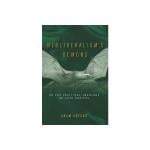Sometime ago I posted about the fact that it is Jesus who best reveals to us the attributes of God. It was therefore thrilling to see that this concept echoed down the centuries in the writings of John Owen. “The great revelation of Christ to us is that of “God as a Father,” and this matters greatly, “for the love of the Father is the only rest of the soul” (page 31). Those words are worthy of much thought and meditation. Owen’s thinking is explained further as follows:
“While Owen’s theological approach is unapologetically Trinitarian, he is not shy about being Christ-centered—Jesus Christ is the mediator between God and man who grounds our knowledge and communion in God. To know God, we are called to look to Christ. We are often tempted to formulate views of God without reference to Christ, and in this way we run the risk of constructing a philosophical rather than biblical conception of the divine. In truth, Scripture in general and Christ in particular must govern our notion of God.
To Know God, Look to the Son
Divine attributes, or truths about God, should always be viewed through the lens of Christ. Owen argues that we will never understand “some of the most eminent and glorious properties of God” unless we see them as revealed in “the Lord Christ, but only by and in him.”
. . . For the Son is the great revelation of the Father (Hebrews 1:3), and the Spirit always draws believers to the Son, who is the perfect image of God. By Jesus Christ “alone we have our understanding to know him that is true.” Elsewhere he writes: “There is no acquaintance with God, as love, and full of kindness, patience, grace, and pardoning mercy . . . but only in Christ.”
To appreciate Owen’s Christ-centered approach we must recognize that for him, the incarnate Lord is the “medium of all communication between God and us. In him we meet, in him we walk . . .
By emphasizing Christ, Owen is not meaning to pit the divine persons against one another, but is aiming to maintain the biblical pattern and method for framing our communion with God. We come to the Father through the Son in the Spirit . . .
So discussions about the attributes of God are best viewed, not vaguely, but clearly through a christological lens. To speak of these attributes as philosophical abstractions, and not in light of the incarnation, is to risk opening up all kinds of sub-Christian conceptions of God.
On the other hand, Owen argues that discussing God’s attributes in light of Christ yields not just greater understanding but also strong comfort for God’s people. These attributes apart from Christ bring only feelings of terror, misery, and uncertainty. “There is no saving knowledge of any property of God, nor such as brings consolation, but what alone is to be had in Christ Jesus, being laid up in him, and manifested by him” (pages 32-33).















